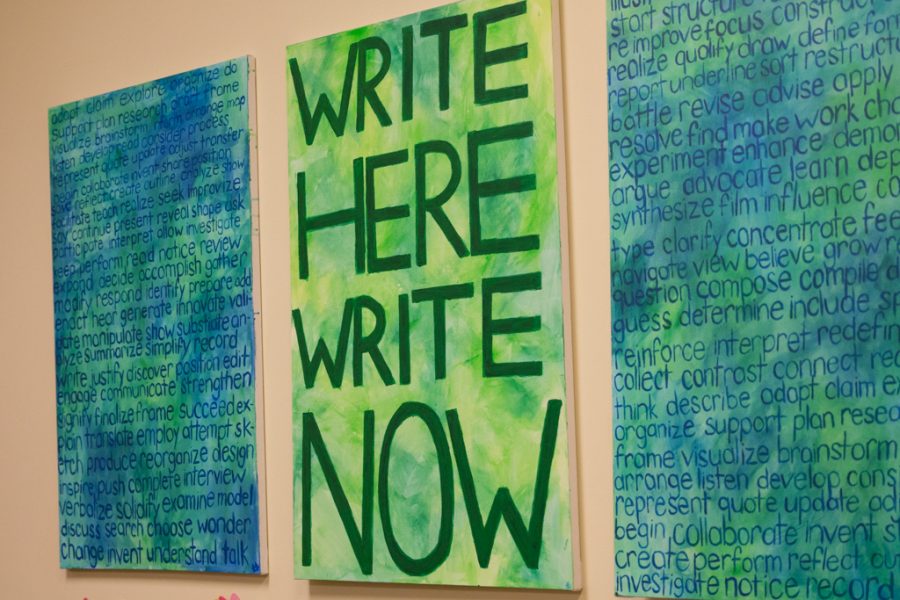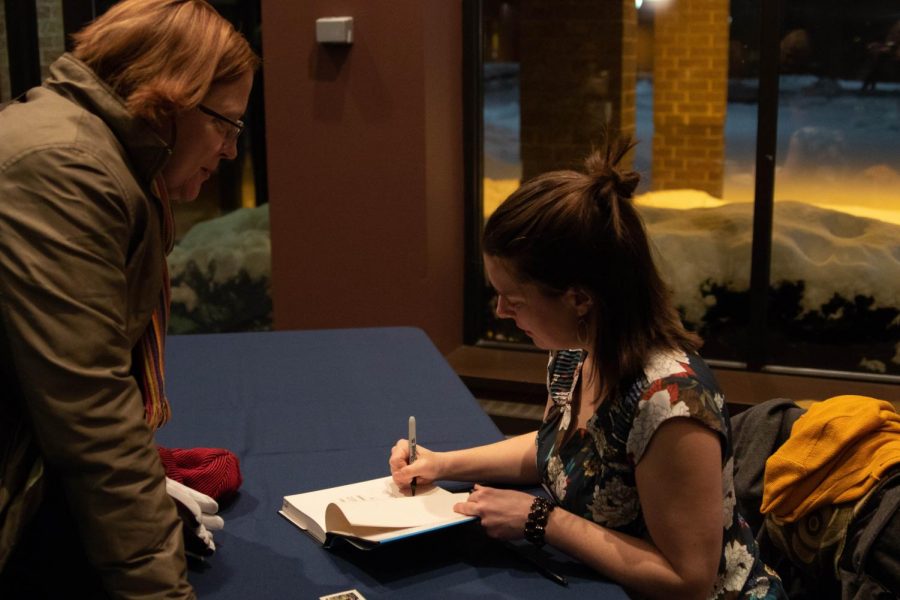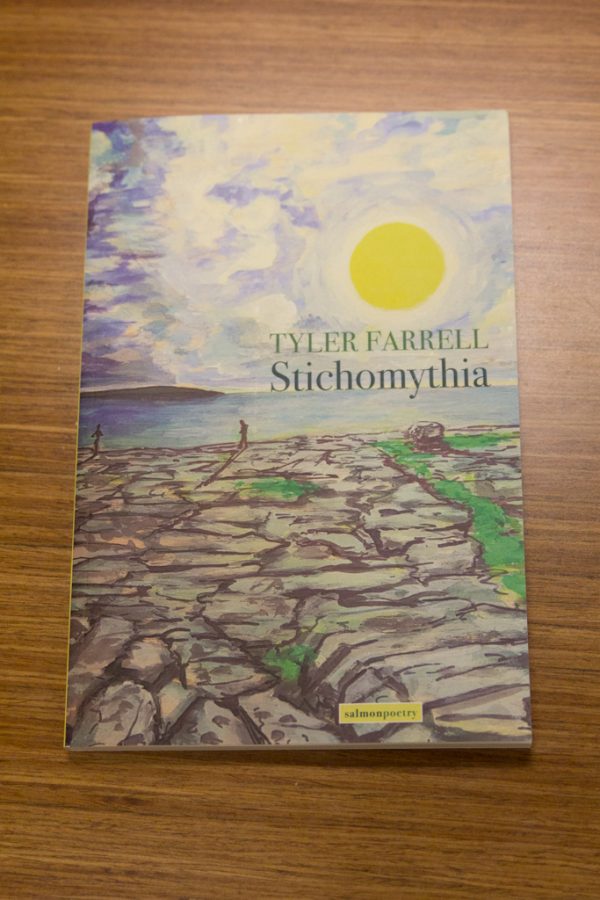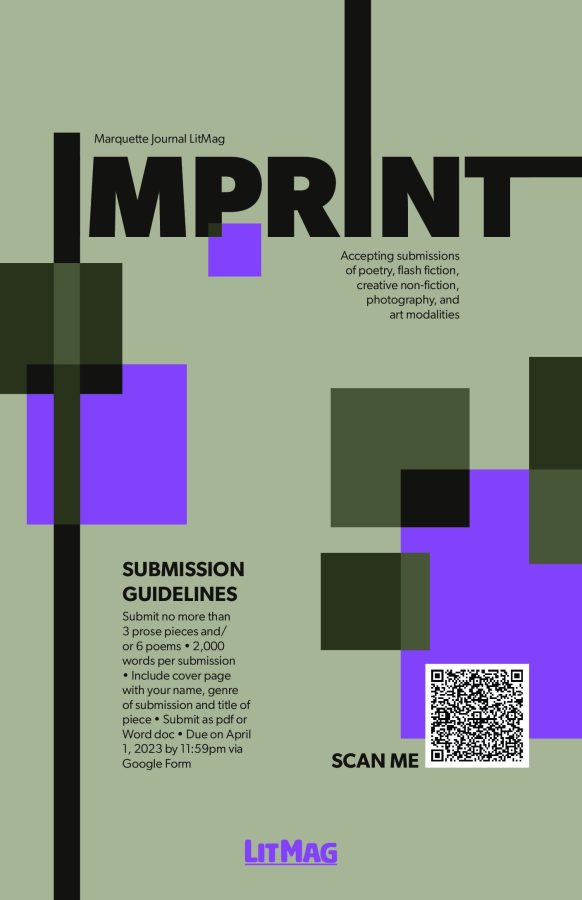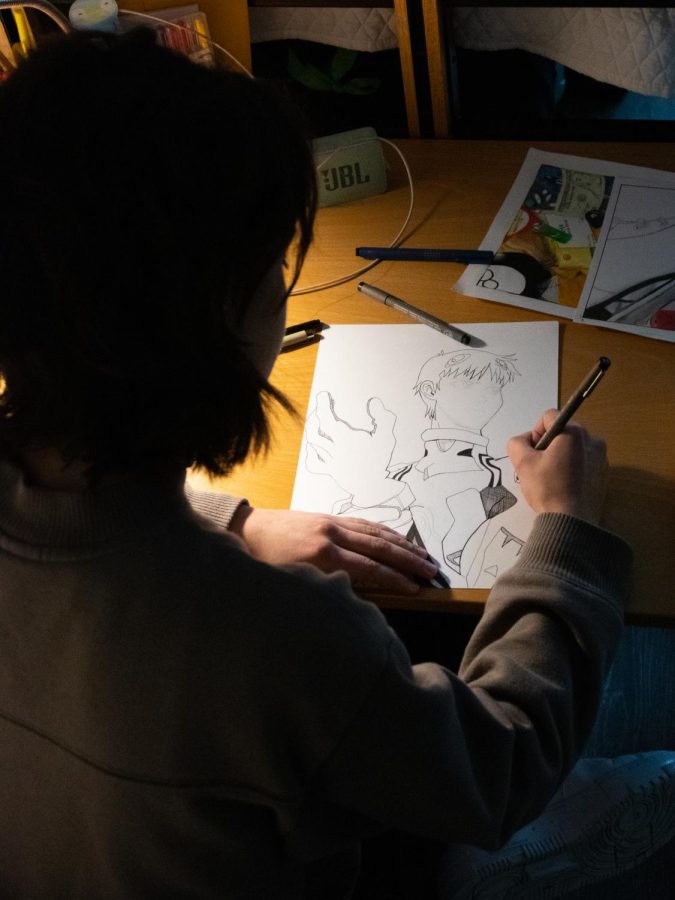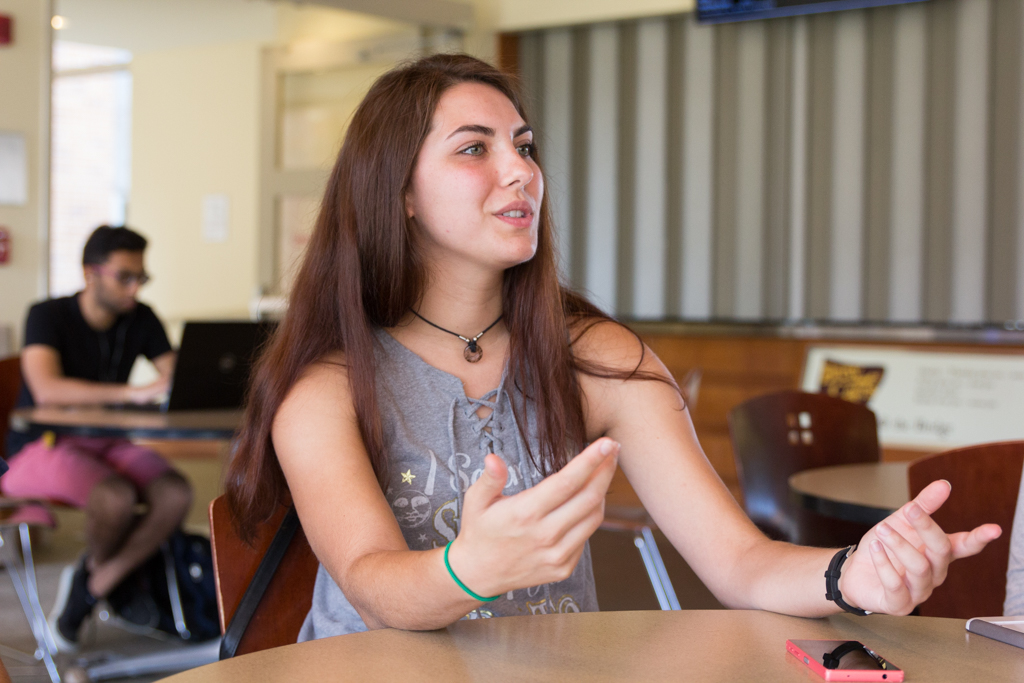One month to write a 50,000 word novel may seem like an impossible task, but writers all over the world are putting themselves to the test this November during National Novel Writing Month, known as NaNoWriMo.
The nonprofit organization offers writers a platform to find inspiration, write and support other authors. After creating a profile online, writers can watch their word count climb as they update their stories throughout the month, ultimately hoping to reach 50,000 words by 11:59 p.m. Nov. 30.
After the month is over, authors can work to publish their writing. Published novels like Sara Gruen’s “Water for Elephants” and Rainbow Rowell’s “Fangirl” began during NaNoWriMo.
CJ Hribal, an author and English professor at Marquette, said NaNoWriMo is a good way to put a spotlight on writing and remind people of its importance. He said it offers focus to those with a desire to write who have put off getting started.
“(NaNoWriMo) is about getting people excited about putting words on paper,” Hribal said.
Hribal said while he likes the spark that NaNoWriMo may inspire, he sees it as more of an opportunity for a first draft. He said his novels can take two for three years to finish, and he goes through as many as 25 drafts before he’s satisfied.
“NaNoWriMo is a way to get a good start on something,” Hribal said. “It’s the idea of committing time to something.”
Aishah Mahmood, a junior in the College of Arts & Sciences, said she has participated in NaNoWriMo in the past. While she is not participating this year, she said she is using the month to actively commit time to writing.
“NaNoWriMo offers an external sense of motivation,” Mahmood said. “As creative writers, we don’t always have a true deadline.”
As an assistant director of the Norman H. Ott Memorial Writing Center, Mahmood helped put together a NaNoWriMo workshop that will take place tonight at 6 p.m. in Raynor 245. Students can develop and share their writing at the workshop, whether they are participating in NaNoWriMo or simply interested in writing.
Mahmood said NaNoWriMo offers a community of writers who support one another, and she said the workshop aims to do the same.
“There is a community of support that validates your creativity,” Mahmood said. He said the workshop is meant to be a helping hand and demonstration that creative writing is just as important as academic writing.
“Look at your calendar and put in a block of time to work each day,” Hribal said. “If you just wait for inspiration to strike, it’s never going to happen.”
Jessica Diebold, a freshman in the College of Communication, said she would like to set aside time each day to write, but finds the commitment hard. Diebold said she has been journaling since she was a kid, and she said she likes tracking her growth.
“I like journaling because it’s personal and accessible,” Diebold said. “If I participated in NaNoWriMo I would write about my life and reflect on society. I think there is more in life than what people talk about.”
For Danielle Koldoff, a freshman in the College of Nursing, writing is a way to escape. Koldoff said she was deeply involved in English in high school and misses the opportunity to be creative while pursuing nursing. She said she appreciates the chance to express herself in her nursing journal entry assignments, but she would like to do more.
“I think NaNoWriMo would be a cool way for people to participate in that escape and relax,” Koldoff said.
Koldoff said her creative writing genre of choice is poetry. She said she pulls inspiration from books of poetry like “Milk and Honey” and would try to create something similar if she were to take part in NaNoWriMo.
NaNoWriMo’s competitive nature of working to reach the 50,000-word goal appeals to Jordan Janusiak, a freshman in the College of Health Sciences. Janusiak said he enjoys creative writing, especially poetry and writing letters.
“Writing is a good stress reliever and lets you show your personality,” Janusiak said. He said he would use the 50,000 words to write about day-to-day interactions, making sure to keep it relatable.

